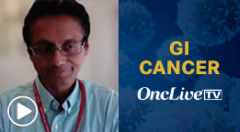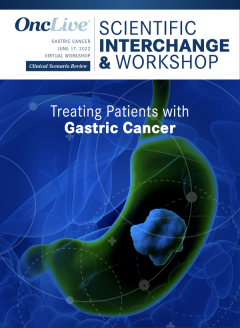
Dr. Rajdev on Detecting HER2 Positivity in GI Cancer
Lakshmi Rajdev, MD, MS, discusses detecting HER2 positivity in patients with gastrointestinal cancers.
Lakshmi Rajdev, MD, MS, director, Gastrointestinal (GI) Oncology, Western Region, Northwell Health Cancer Institute, chief, Hematology and Oncology, Lenox Hill Hospital, discusses detecting HER2 positivity in patients with gastrointestinal (GI) cancers.
HER2-positive GI cancer differs from that of HER2-positive breast cancer in that the expression is more heterogeneous, Rajdev says. Due to this intratumoral heterogeneity, it is important to analyze several biopsies to exclude the presence of HER2 overexpression in GI cancers, Rajdev adds. Typically, oncologists begin with immunohistochemistry to determine HER2 status, and fluorescence in situ hybridization (FISH) testing can also make the determination. Next-generation sequencing (NGS) assays have also been shown to be effective in detecting HER2 positivity, Rajdev explains.
There are some differences to be aware of between HER2-positive gastroesophageal junction tumors, gastroesophageal adenocarcinomas, and breast cancer, Rajdev explains. The expression in gastroesophageal adenocarcinoma stands to spare the digestive luminal membrane, and the staining is not completely circumferential, which is how it is observed in breast cancer, Rajdev adds.
In the future, NGS is going to be the gold standard to identify several different biomarkers, Rajdev says. Beyond these markers, clinical factors such as performance status, prior lines of therapy, comorbidities, and patient preferencemust also be considered when making therapeutic decisions for these patients, Rajdev concludes.








































